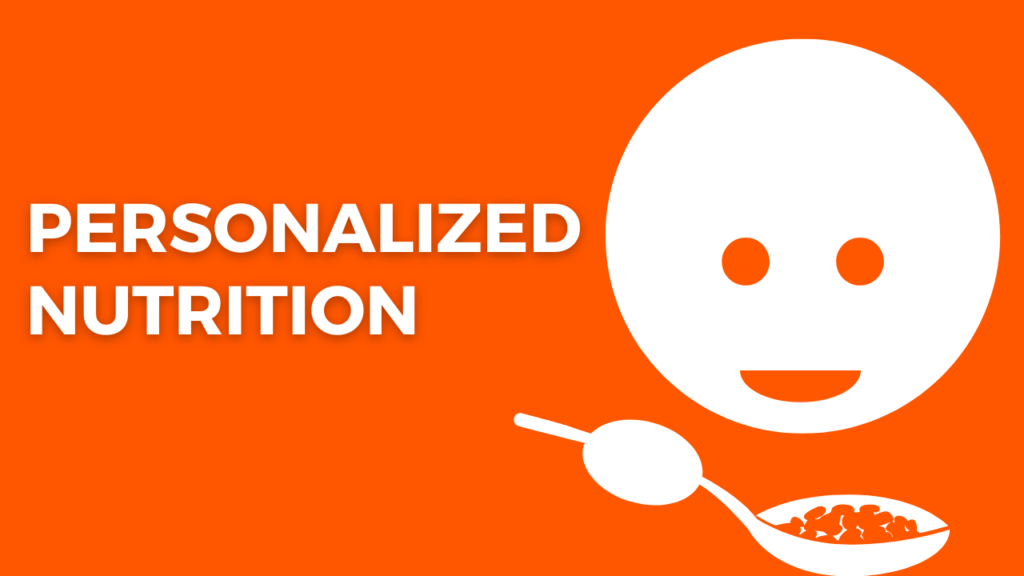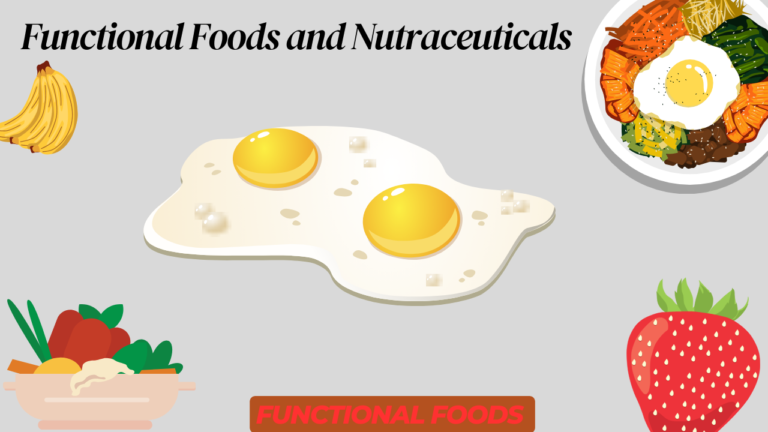Personalized Nutrition

Personalized nutrition involves tailoring dietary advice and recommendations to an individual’s specific needs, taking into account factors like genetics, metabolism, health conditions, lifestyle, and personal preferences. Here are some aspects of personalized nutrition:
- Genetics and Nutrigenomics:
- Understanding how genetic variations influence nutrient metabolism and how certain foods may affect individuals differently based on their genetic makeup.
- Genetic testing and analysis can provide insights into personalized dietary recommendations.
- Metabolic Variability:
- Individuals metabolize nutrients differently. Factors like age, gender, body composition, and metabolic rate influence how the body processes and uses nutrients.
- Health Conditions and Allergies:
- Personalized nutrition considers specific health conditions, allergies, intolerances, or dietary restrictions an individual may have.
- For instance, managing diabetes, heart disease, or gastrointestinal issues through tailored dietary plans.
- Lifestyle and Preferences:
- Personalized nutrition takes into account an individual’s lifestyle, cultural background, food preferences, and eating habits.
- It considers factors like cooking skills, access to certain foods, and the feasibility of implementing dietary changes.
- Nutritional Counseling and Assessment:
- Registered dietitians or nutritionists can conduct comprehensive assessments considering an individual’s health history, dietary habits, and goals to create personalized plans.
- Technology and Apps:
- Advances in technology allow for the development of apps and platforms that provide personalized meal plans, track nutrient intake, and offer dietary recommendations based on individual needs.
- Precision Nutrition:
- It involves a precise, individualized approach to nutrition, aiming to optimize health, performance, or specific outcomes for each person.
- Long-term Health and Wellness:
- Personalized nutrition focuses on sustainable dietary changes that support long-term health and wellness goals rather than short-term fixes or fad diets.
- Continuous Monitoring and Adjustments:
- Regular monitoring and adjustments to dietary plans based on an individual’s response, changes in health status, or lifestyle modifications.
- Integration with Healthcare:
- Collaboration between healthcare professionals, including doctors, dietitians, and genetic counselors, to provide comprehensive and integrated personalized nutrition care.
Personalized nutrition is a growing field that acknowledges the uniqueness of each individual’s nutritional needs. It aims to provide targeted dietary guidance that is more effective and sustainable in promoting health and well-being.
Personalized nutrition involves tailoring dietary recommendations and interventions to meet an individual’s specific nutritional needs, preferences, and health goals. This approach recognizes that people have unique responses to food based on factors such as genetics, metabolism, lifestyle, and health conditions. Here are key elements of personalized nutrition:
- Genetic Factors:
- Genetic testing can provide insights into how individuals metabolize certain nutrients, their susceptibility to certain conditions, and their response to specific dietary patterns.
- Metabolic Profile:
- Factors such as metabolism rate, insulin sensitivity, and energy expenditure can vary among individuals. Personalized nutrition takes into account these metabolic differences to optimize food choices.
- Health Conditions:
- Individuals with specific health conditions or risk factors may benefit from personalized dietary plans. For example, someone with diabetes may need a different approach to carbohydrate intake than someone without the condition.
- Nutrient Requirements:
- Personalized nutrition considers an individual’s unique nutrient needs based on factors like age, sex, activity level, and overall health.
- Food Preferences and Culture:
- Taking into account personal food preferences, cultural background, and lifestyle makes it more likely that individuals will adhere to dietary recommendations.
- Allergies and Sensitivities:
- Identification of food allergies or sensitivities is crucial in developing personalized nutrition plans to avoid adverse reactions and promote optimal health.
- Weight Management Goals:
- Personalized nutrition can be tailored to support weight loss, weight maintenance, or muscle gain based on individual goals.
- Gut Microbiota:
- Emerging research suggests that the composition of the gut microbiota can impact how the body processes food. Personalized nutrition may consider gut health for some individuals.
- Nutrigenomics and Nutrigenetics:
- Nutrigenomics studies how nutrients interact with genes, while nutrigenetics explores how genetic variations influence responses to diet. Insights from these fields can inform personalized nutrition recommendations.
- Continuous Monitoring:
- Regular assessments and adjustments are made based on changes in health status, lifestyle, or goals.
- Behavioral Factors:
- Understanding an individual’s eating behaviors, habits, and psychological factors is integral to developing a plan that is both effective and sustainable.
Personalized nutrition is a dynamic field that combines scientific advances, technological tools, and individualized coaching to create tailored dietary plans. As our understanding of genetics, metabolism, and health continues to grow, personalized nutrition is likely to play an increasingly important role in promoting optimal well-being. It’s important to consult with healthcare professionals or registered dietitians with expertise in personalized nutrition for personalized advice.






